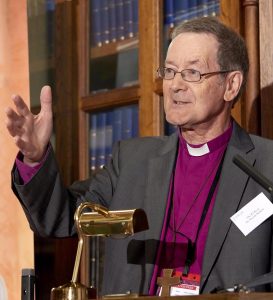Fostering Frameworks that Set People Free

Rt Revd Dr Alastair Redfern was Bishop of Derby from 2005 to 2018, sitting in the House of Lords. He has been a Trustee of The AMAR International Charitable Foundation since 2016 and is the convenor and chair of AMAR’s Windsor Dialogue. The following is an edited summary of his remarks at the April 2022 Windsor Dialogue Conference.
Introduction
I am grateful for the opportunity to participate in this conference, in which we are learning about ourselves, our relationships, our communities, and our ability to listen to others and be transformed by them. In working with refugee camps, we see a microcosm of what the human struggle is about, with such themes as health and wellbeing, spirituality, division, and community identity. The purpose of the panels is to examine the macro effects of this struggle and determine what kind of political values and policies we want to encourage, as well as to continue the AMAR Foundation’s example of interconnectivity, mutuality, and connecting at the grassroots level. We should ask the question: what frameworks can we help foster that don’t just let people control difficult situations but really set people free? All the way along, we trust that there is a deeper register in the human heart that music exposes—one that can bless, encourage, and brighten the future of everyone involved in this struggle.


